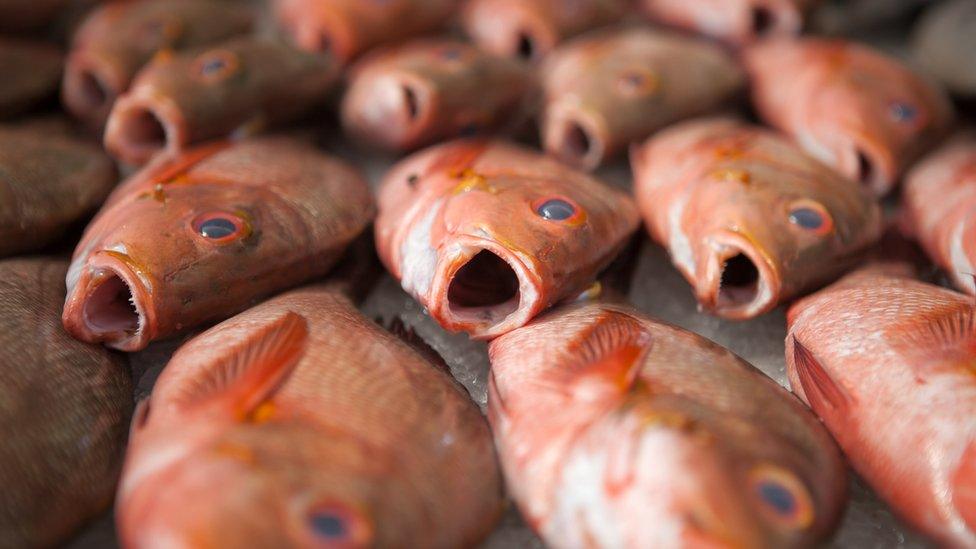Scallop row: UK in talks to ensure 'no repeat' of clashes
- Published
French and British fishing fleets have come to blows over when and where they can catch scallops
The UK government has said it is talking to French authorities to ensure there will be "no repeat" of clashes between fishermen over scallops off France's north coast.
On Monday, nearly 40 French boats confronted British rivals they say are depleting scallop stocks in the area.
The UK's environment secretary says the British boats were fishing legally.
France says it is ready to send more police vessels to the area to prevent further clashes.
Boats collided and stones were thrown during the confrontation off the coast of Normandy in the early hours of Tuesday.
Local official Ingrid Parrot said the situation had been "extremely tense" and both sides had thrown objects at each other.
She defended sending just one boat to police the incident overnight, saying: "The aim was to stop the tensions from increasing. We sent only one ship that day, but we will send more if it's necessary."
Mike Park, chief executive of the Scottish White Fish Producers Association, said the incident was "high seas piracy" but said the French had agreed to a request for talks.
"We need to decrease tensions in the whole area," he told the BBC's Victoria Derbyshire programme.
The European Commission urged France and Britain to find an "amicable" solution.
Scallop row: What's the EU's fishing feud about?
What exactly happened?
The French boats gathered overnight on Monday in protest against so-called "pillaging" by five larger British vessels.
The British were chased away with two boats, Golden Promise and Joanna C, returning to Brixham harbour with damaged windows.
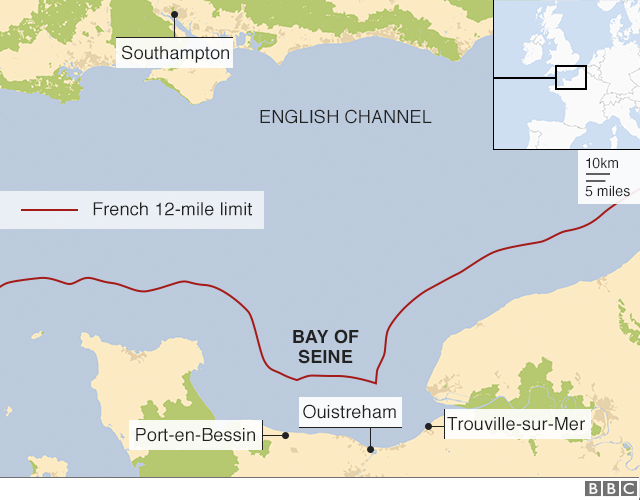
The crews alleged they had been surrounded and had rocks and metal shackles thrown at them, but French police said UK boats responded in kind.
A video published by French media shows a Scottish scallop dredger, the Honeybourne 3, colliding with French vessels.
Why has it all blown up now?
Tension has rumbled for 15 years, but in the past five a deal has prevailed - larger British boats stayed out of the area in exchange for more fishing rights.
British boats can gather scallops year-round, but French law restricts the scallop fishing season to between 1 October and 15 May.
Marc Delahaye from the Normandy fishing committee said they also objected to the British using "great dredgers" in the area, while the French used smaller boats.
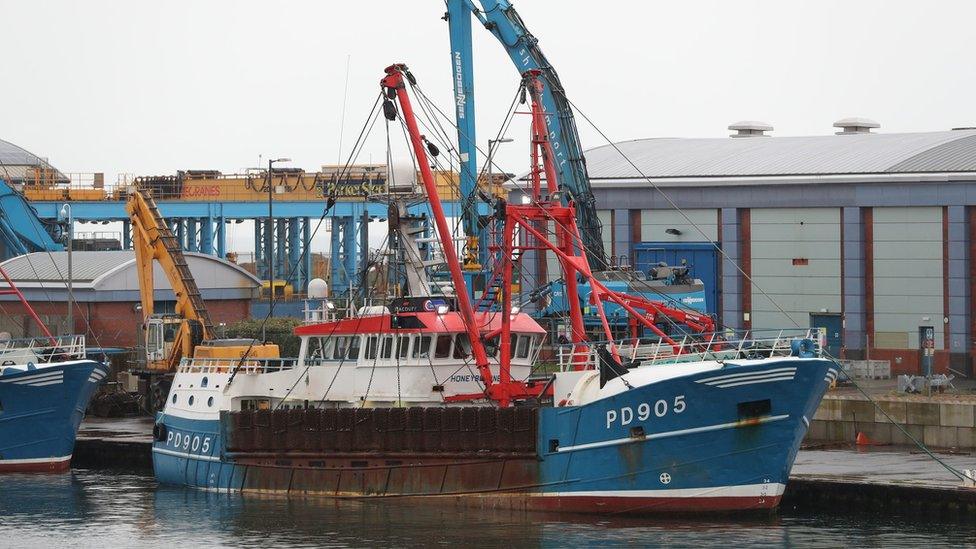
The Honeybourne III, a Scottish scallop dredger, docked in West Sussex after the clash
The UK scallop industry is worth £120m and supports 1,350 jobs. About 60% of the catch is exported - with much of it being bought by the French.
But a 2016 report by the International Council for the Exploration of the Sea (ICES) warned that the fishing effort by France, the UK, Belgium and Ireland in the Bay of Seine was "too high".
International environmental group ClientEarth said it was "disappointing" to see boats catching scallops during the spawning season, when it said depleted stocks could reproduce and grow.
France was demonstrating "high environmental standards" by banning its fleet from fishing during the summer, the group said.

Analysis: James Landale, Diplomatic Correspondent
Inevitably Brexit looms large. Some French fishermen hope that when the UK leaves the Common Fisheries Policy, British trawlers will not be allowed into these waters.
But it may not be as simple as that. It is still not clear what agreement an independent UK may make with the EU on fishing quotas.
And the French desire to negotiate some continuing access to British waters may be more important than protecting their scallops off Normandy.
So Brexit may change the rules of the game but it is unlikely to bring an end disputes to like this.

How have the British responded?
Environment Secretary Michael Gove said the government was talking to French authorities to ensure there was "no repeat" of the clashes.
He told the BBC his heart went out to the British fishermen involved, who had "absolutely every right to be fishing in those waters".
The French had a "legal responsibility" to ensure their territorial waters were "appropriately policed" to allow legal fishing to continue, he added.
Prime Minister Theresa May called for an "amicable solution" to the row.
"It's what we want and it's what France wants and we will be working on that," she said.
Mr Park rejected suggestions that British boats were overfishing the area.
They catch just 6% of the scallops in the area, he said, so "if there's any accusation of over fishing it's not on the UK fishermen, it's on the French fishermen."
"Scallops are plentiful and they're expensive," he said. "We're doing nothing wrong and what we can't do is be bullied."
Sheryll Murray, MP for South East Cornwall, said environment secretary Michael Gove has assured her "appropriate measures" are in place to enable UK fishermen to keep working.
But she questioned whether French authorities were "turning a blind eye" while their fishermen "took the law into their own hands".
Local French officials said they could not intervene directly because the conflict took place in international waters.
How is it being reported in France?
By BBC Monitoring
French media have framed the scallop showdown as a "battle" between two nations, with some outlets highlighting the future impact of Brexit.
Under the headline "The battle for Saint-Jacques scallops off Normandy", left-wing daily Le Monde cited fishing chief Dimitri Rogoff who said that the UK would normally "be considered a third country and will not have access to these [fishing] zones" after it leaves the European Union.
French fishermen are nevertheless worried by Brexit "as Britain plans to pursue its own fishing policy starting from the end of March 2019, particularly regarding access to its territorial waters of boats from EU countries" noted weekly magazine L'Usine Nouvelle.
Popular regional newspaper Ouest-France said that sailors from Normandy "insist that they respect the [fish] resources" and had gone to sea "to explain this to the English".
"We have won a battle, but we haven't won the war," concluded one French fisherman in a report by public TV channel France 3.

Are you a UK fisherman with knowledge of what is happening in the English Channel? Please share your experience of scallop fishing by emailing haveyoursay@bbc.co.uk, external.
Please include a contact number if you are willing to speak to a BBC journalist. You can also contact us in the following ways:
WhatsApp: +44 7555 173285
Tweet: @BBC_HaveYourSay, external
Send pictures/video to yourpics@bbc.co.uk, external
Text an SMS or MMS to 61124 or +44 7624 800 100
Please read our terms & conditions and privacy policy
- Published29 August 2018
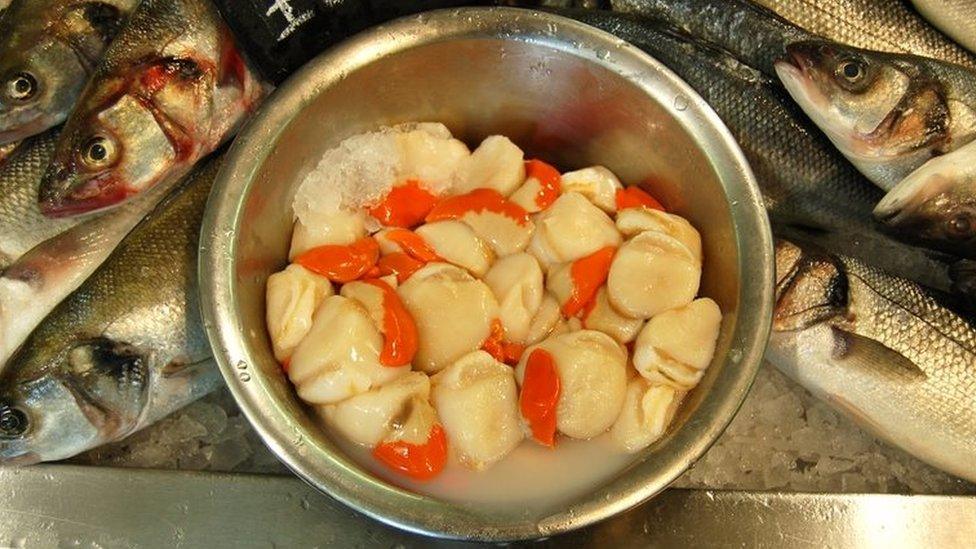
- Published29 August 2018
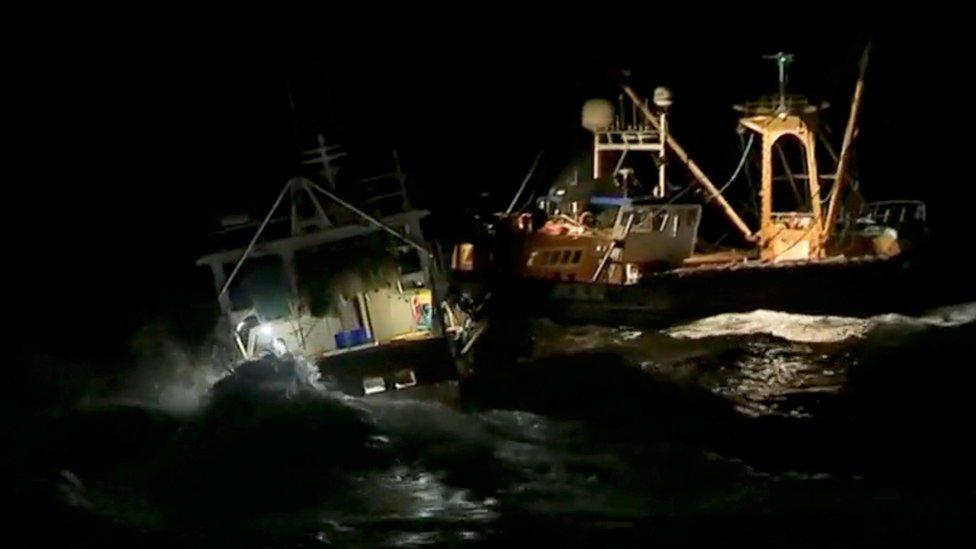
- Published21 August 2018
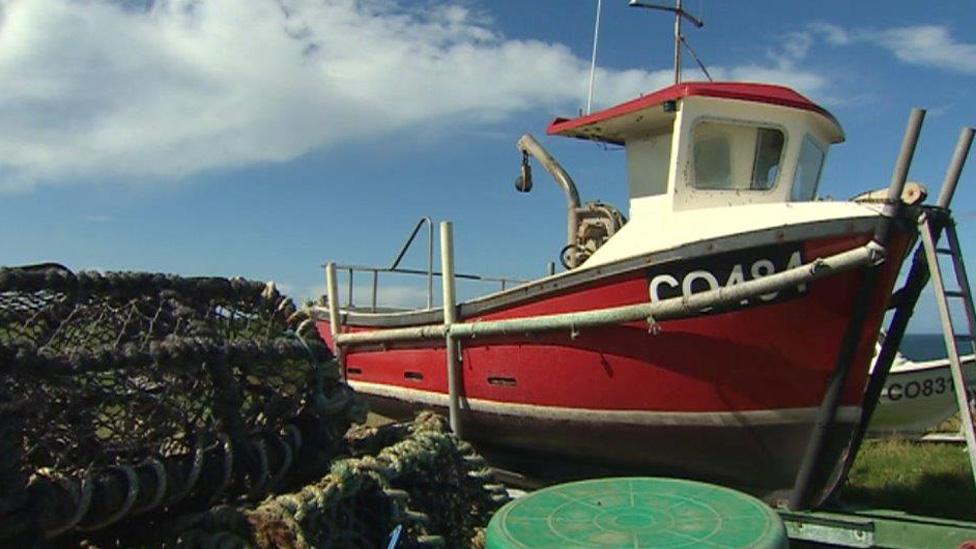
- Published21 March 2018
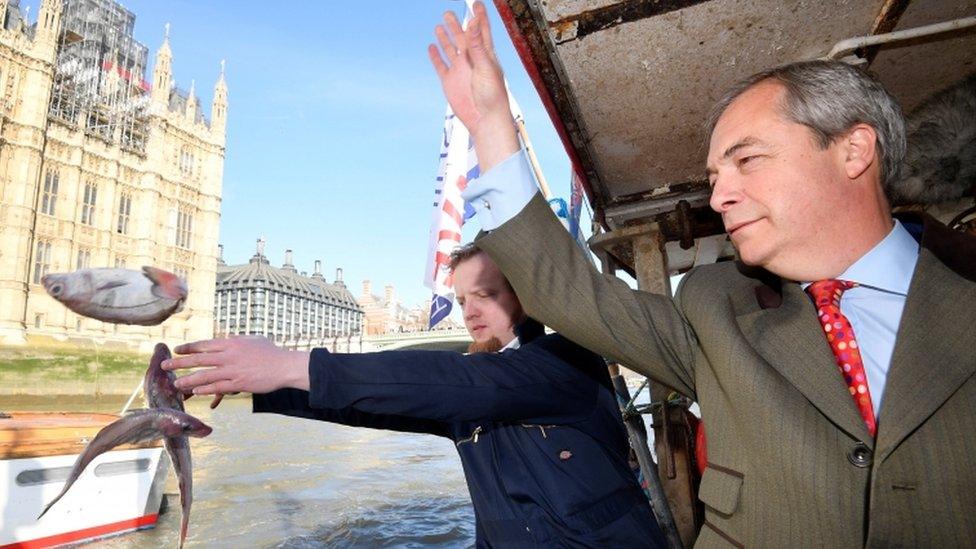
- Published20 June 2018
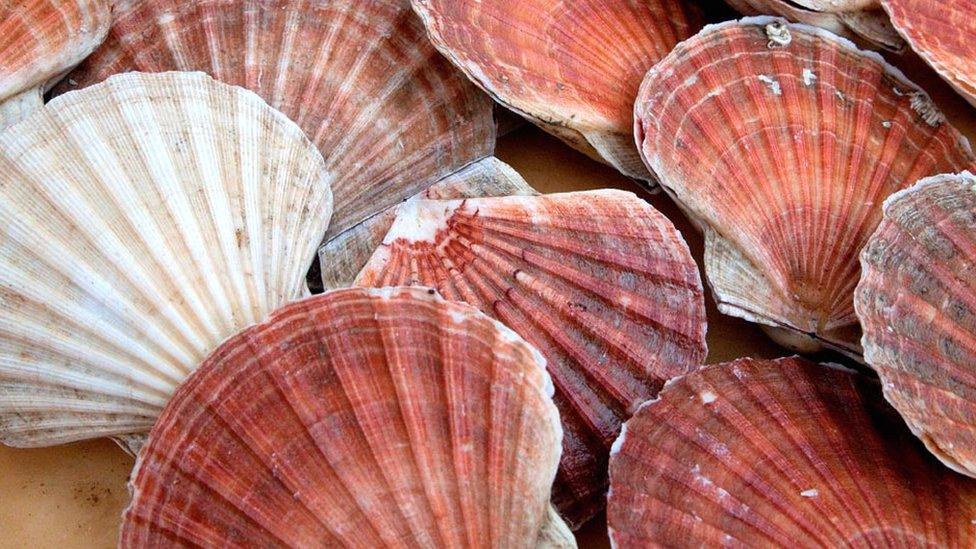
- Published23 February 2018
